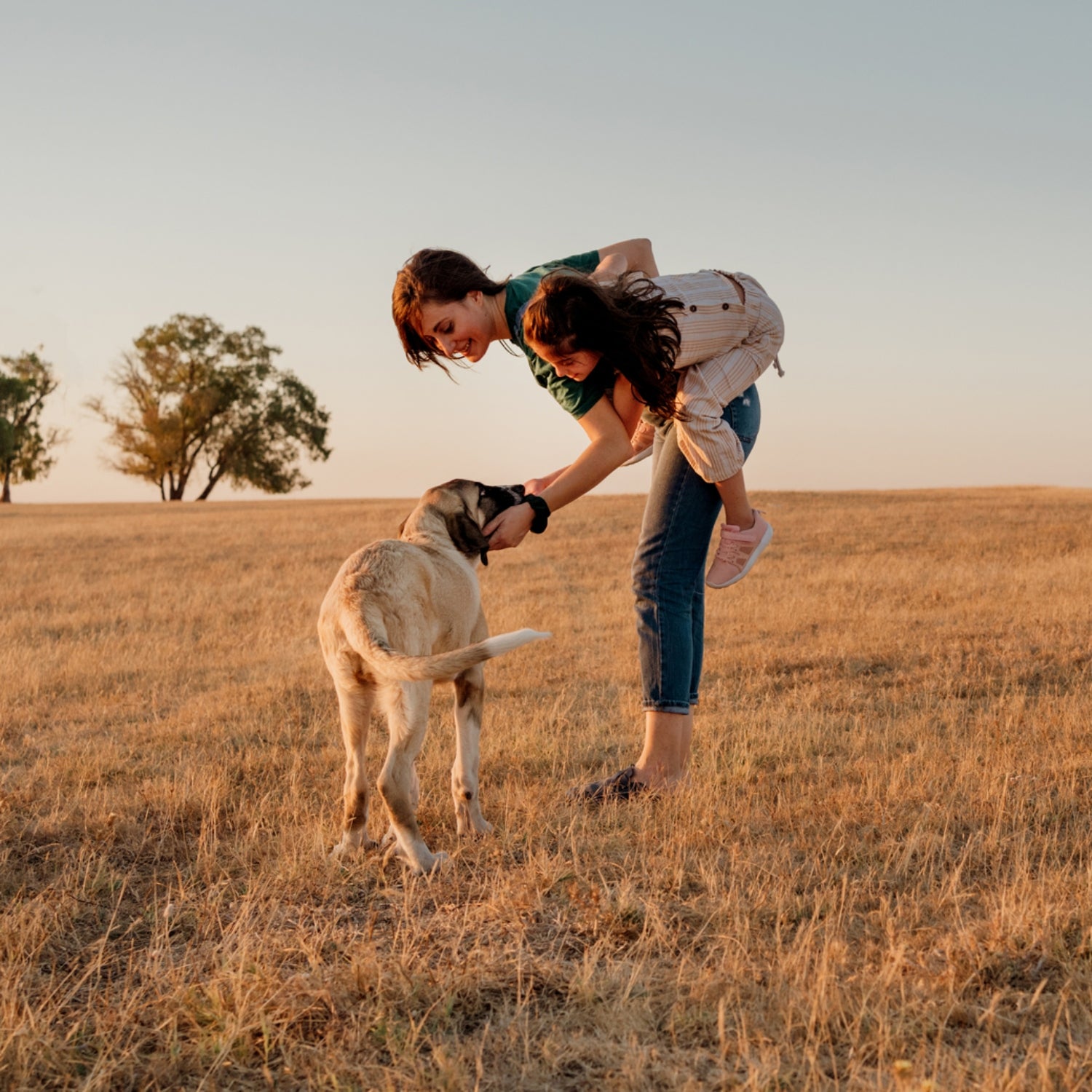Welcome to Tough Love. We’re answering your questions about dating, breakups, and everything in between. Our advice giver is Blair Braverman, dogsled racer and author of and . Have a question of your own? Write to us at toughlove@outsideinc.com.
My wife has always tried to rescue animals when she finds them and thinks she can help. She’s brought in bunnies, birds, and once even a hurt garter snake. She makes them habitats in a box and makes sure they have food and water to give them a chance to heal. Sometimes they get better and she releases them, but just as often, they die pretty quickly. She has also talked about wanting to take in dogs from the local shelter who are old and sick, so she can try to give them a nice life for the short time they have left. Of course, they would end up dying, too.
The thing is, we have a daughter, and she’ll be turning three soon. I worry that she’s getting old enough to notice what’s going on, and that it might be traumatic for her to keep bonding with animals only to see them die. I’d like to ask my wife to hold off on the animal rescues until our daughter is old enough to be OK with it, but I don’t want to seem like I’m dismissing something that’s important to her. Is this a reasonable request?
Your wife sounds lovely. Taking in old dogs in order to give them peace at the end of their lives is one of the most selfless and beautiful acts I can imagine, and the fact that her care extends to all animals just shows what a capacity she has for compassion and love. I appreciate the respect you have for your wife, and also the fact that you’re trying to protect your daughter from unnecessary sorrow.
I’m curious, are you worried about your daughter’s reaction because you’ve seen her become upset, or even traumatized, by witnessing the loss of animals, or because you anticipate that it might be the case? Of course, every kid is different. But I was a pretty sensitive child, and my family often cared for hurt animals who didn’t end up making it. Although I was sad when they passed, I wasn’t disturbed. In fact, I think it helped me make sense of the world.
The thing is, any time kids are exposed to the outdoors, they’re encountering death—because beyond the buffers that we build around our human lives, life and death are always entwined. A simple walk in the woods might reveal squashed caterpillars on the trail, a spider devouring a moth in its web, and a hawk diving for a mouse. These things might seem sad, or gross, or fascinating—particularly to a child, who hasn’t learned to tune them out—but ultimately they’re just part of nature.
I haven’t raised children, so I brought your dilemma to a friend of mine, Ryan Beaber, whose parenting I admire. He has three teenage daughters and a six-year-old son, all raised in the Northwoods, and all brave, kind, and confident. He’s also a dogsledder, which means his kids have loved—and watched grow old, and eventually had to say goodbye to—an unusually large number of beloved dogs.
His belief, he told me, is that when young kids encounter animals who are ill, or who pass away, it gives them a chance to adjust to difficult or scary concepts. “Things live and things die,” he said, “and that’s the natural cycle we live in. My youngest is just starting to ask a lot of questions about that stuff. He’s seen animals come and go. In my opinion, that exposure is better for kids in a lot of ways. They’re eased into the concept of death, because their brains can’t fully understand it at first, but then they understand it a little more, and a little more. Rather than having it thrown at them when they’re ten or something, and then they’re struck hard.”
I don’t think you should ask your wife to change her behavior, but I do think you should play things by ear. Share your concerns with her so that you can keep tabs on the situation together. I don’t know her level of expertise, so I’m going to give her the benefit of the doubt and assume she’s careful about providing appropriate care to different species, and also taking precautions with animals who can transmit diseases to humans. She can explain these practices to your daughter, as a learning opportunity. She can also model that if an animal is dangerous, or the problem is too complex, that you call a nature center and leave the situation to experts.
Of course, if you start to see that your daughter is showing signs of stress because of these rescued animals, then it makes sense to reconsider. And if you have persistent doubts, you should speak with a child psychiatrist. But your daughter might end up handling the situation far better than you think.
If your daughter grows up around rescued animals, she’ll learn something important about her mom: that she cares for creatures who are sick, or helps them pass peacefully, and with love. Imagine a kid growing up with the understanding that that’s one of our roles in the world. That could be a kid who finds greater peace with nature, or feels a calling to care for others, or is less terrified by the idea of death, or has an uncommon depth of respect for other creatures. These are beautiful traits that would serve her well. She might even grow up to be like her mother. The world should be so lucky.


